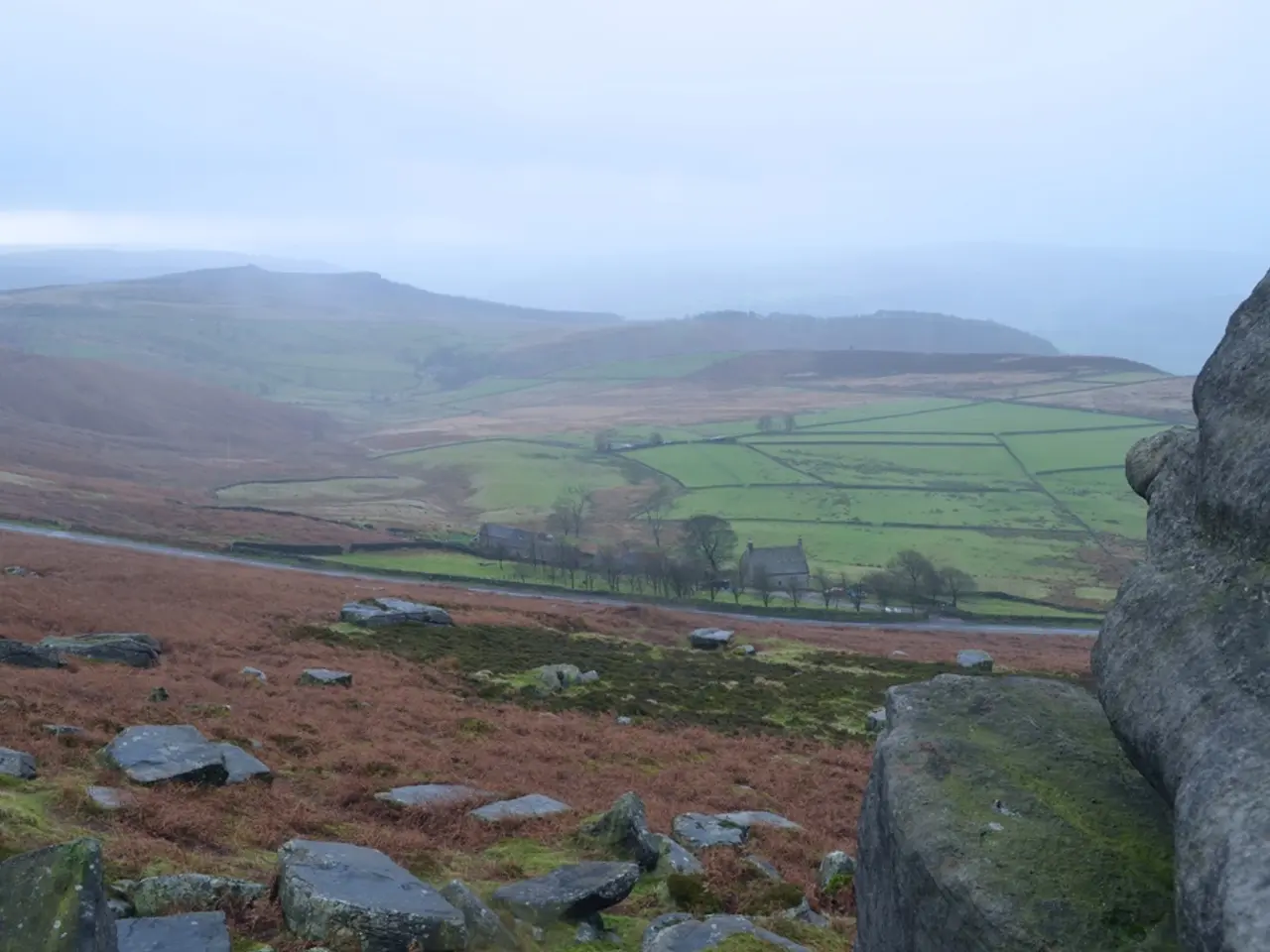Living the Nomadic Dream: A Looking-Glance at a Vagabond's Existence
Traveling the world is an enriching and exciting experience, offering the opportunity to explore different places, experience adventure, and create unforgettable memories. However, traveling also comes with its own set of challenges.
From the constant demand for adaptation to communication difficulties, financial demands, feelings of loneliness and homesickness, and the need to be culturally sensitive, the life of a traveler is not without its hurdles. Yet, these challenges can be seen as stepping stones towards personal growth and self-discovery.
Solo travelers, in particular, gain confidence to handle situations and make appropriate decisions according to the obstacles they encounter, such as missing flights, losing belongings, or getting lost in an unfamiliar place. Traveling requires one to leave their comfort zone and adapt to unfamiliar territories according to local customs.
The rewards of such experiences are immense. A traveler opens themselves up to a world with endless possibilities of adventure, such as the Opera House in Sydney, Australia, or the Vasa Museum in Stockholm, Sweden. International traveling leads an individual to an array of languages and customs, engaging with people of various civilizations and traditions, promoting a healthy understanding of different cultures.
Frequent travel encourages packing light, focusing on experiences rather than material possessions, and embracing a more simplistic approach to life. Preparing for a trip is crucial to ensure an enjoyable experience. Steps include destination research, travel documentation and insurance, financial preparation, informing trusted contacts, and packing light.
Travelers are more likely to embrace a minimalist lifestyle. They often connect with like-minded individuals through social media platforms, travel forums, and local meetups, forming friendships and sharing valuable insights and tips. The world's most well-traveled person is Fred Finn from the United Kingdom, who has visited over 150 countries and has accumulated more than 15 million air miles.
Budget travel does not mean sacrificing the cultural experience. In fact, it enhances it. Practical tips for budget traveling combined with cultural immersion include choosing local, affordable accommodations; eating local street food; using overland and public transportation; and engaging directly with local people and events.
Staying in local lodgings or homestays instead of international hotels or resorts promotes authentic cultural exchange and often lowers costs. Opting for budget-friendly transport methods like overnight trains, buses, or overland travel saves money and allows deeper regional experience. Eating at local markets, street food stalls, and neighborhood restaurants offers authentic flavors and cheaper meals.
Learning basic local language phrases facilitates communication, deepens cultural connections, and accesses insider knowledge. Participating in local events and festivals allows travelers to experience culture during expressive communal moments such as religious ceremonies, music, or dance events. Exploring areas beyond main tourist attractions, walking or biking to discover local life, avoiding tourist traps, and meeting residents adds a layer of authenticity to the travel experience.
Balancing cooking and dining out, especially when accommodations have kitchens, is a cost-effective strategy. Volunteer or work in exchange for accommodation to extend travel funds and enhance cultural immersion through meaningful engagement. Plan your itinerary according to seasonality to avoid extremes, maximize pleasant weather, lower costs, and cultural opportunities.
Overall, budget travel that emphasizes local interaction and cultural participation enriches the travel experience beyond what expensive, packaged tours provide, often creating more memorable and authentic encounters. These practical tactics help travelers save money while gaining deeper, respectful immersion in the cultures they visit.
Language is the primary key to communication and the biggest obstacle when traveling internationally. Engaging with locals and studying their lifestyles, including paying homage to traditional rituals and savoring authentic cuisine, is crucial for a traveler.
In conclusion, traveling is more than just sightseeing. It's about cultural enrichment, vast understanding, and enhanced interpersonal skills. It's about stepping out of your comfort zone, being exposed to new experiences, and taking the initiative. It's about trusting your instincts, being more self-reliant, and gaining a better insight into mother earth and yourself. So, pack your bags, and let the adventure begin!
[1] Lonely Planet. (2021). Budget Travel. [Online]. Available: https://www.lonelyplanet.com/travel-tips-and-articles/budget-travel/a/all
[2] The Broke Backpacker. (2021). How to Travel the World on a Budget. [Online]. Available: https://thebrokebackpacker.com/travel-the-world-on-a-budget/
[3] Nomadic Matt. (2021). How to Travel the World on $50 a Day. [Online]. Available: https://www.nomadicmatt.com/travel-guides/how-to-travel-the-world-on-50-dollars-a-day/
[4] Wanderlust. (2021). How to Travel the World on a Budget. [Online]. Available: https://www.wanderlust.co.uk/articles/how-to-travel-the-world-on-a-budget/
[5] Travel + Leisure. (2021). How to Travel the World on a Budget. [Online]. Available: https://www.travelandleisure.com/travel/how-to-travel-the-world-on-a-budget
Read also:
- Harsh Desert Environments Support Thriving Fruit Groves: Agriculture in Severe Climates
- One night of sleep deprivation can cause changes in our genes, according to a research study.
- Governmental personnel records to no longer include COVID-19 vaccine statutes of employees
- Threat of heart attacks on the rise due to intense heat and polluted air conditions





